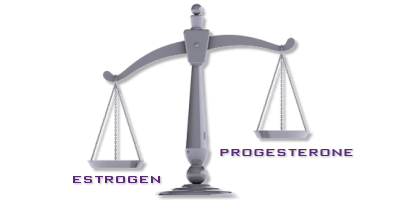MISCARRIAGE
Can Progesterone help with Miscarriages?
The factors listed below can impact fertility and may lead to a miscarriage:
- venereal diseases causing scarring of the reproductive tract
- genetic abnormalities caused by environmental poisons
- a diet deficient in the necessary vitamins and minerals
- stress
- hormonal imbalances
Research indicates that insufficient progesterone levels can lead to infertility in the latter part of the menstrual cycle, commonly referred to as a "defective luteal phase." For successful conception, estrogen plays a crucial role in thickening the uterine lining. Following ovulation, progesterone’s function is to further enhance this lining in anticipation of a fertilized egg. If the uterine lining fails to reach adequate thickness, the risk of miscarriage increases.
If the time span between ovulation and menstruation is too brief (fewer than 12 days), it indicates that insufficient progesterone has been produced, which may lead to a miscarriage as soon as the next menstrual cycle. The egg requires approximately 14 days to travel to the uterus, and unless the ovaries maintain elevated levels of progesterone during this period, menstruation will happen before the egg can implant.
The anovulatory cycle is another cause of infertility, this means that a woman does not ovulate, most common in women from their mid-thirties however, research has found that younger women are also suffering from these cycles. Too much estrogen during the luteal phase, particularly the xeno-estrogens such as DDT, can cause miscarriages. To avoid them and reduce infertility optimum health is essential.
If you have any questions about Natpro Progesterone Cream
Follow these guides :
- Avoid all environmental poisons, particularly if estrogenic
- Vitamin C increases sperm counts and mobility
- A lack of vitamin E, Omegas 3 and 6 damages the reproductive tract
- Some vaginal secretions act as spermicides, this has been linked to a lack of Omega 3 and 6
- Vitamin A is essential for the development of the male sex hormones
- Omega 3 and zinc are vital to the development of the sperm
- Zinc deficiency causes infertility
- Avoid all soy products, unless fermented, as these reduce the sperm count
- A lack of vitamin D3 leads to anovulation
- Taurine is needed
Additional progesterone is required to address a faulty luteal phase. It can frequently promote ovulation or help regulate irregular cycles. Progesterone should be administered starting from ovulation or, if the timing of ovulation is uncertain, for no longer than 14 days prior to the onset of the next menstruation.
It is crucial to persist with progesterone therapy until the fourth month, as it is at this stage that the placenta assumes responsibility for progesterone production.
Under no circumstances should progesterone be abruptly discontinued, as this may lead to a miscarriage. A typical cycle ranges from 21 to 36 days, with possible variations of up to 4 days each month. Ovulation usually occurs about 14 days prior to the onset of menstruation in each case.
To find out more about conception and pregnancy please click the link.

